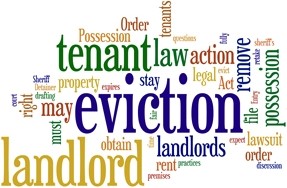In present-day South Africa, it is becoming increasingly popular for two unmarried individuals to live together as a couple. Despite being regarded a social norm, the law does not automatically grant parties who cohabit together legal rights. Such individuals have to prove that their cohabitation amounts to a Universal Partnership before being able to claim from one another.
In Ponelat v Schrepfer 2012 (1) SA 206 (SCA), it was held that a universal partnership is present if the following necessary requirements for its existence are met (regardless of whether the parties are married, engaged or cohabitating):
-
- Each partner contributed to the partnership, whether it be money, labour or skill;
- The business should be carried on for the joint benefit of the parties; and
- The objective must be to make a profit.
As established by the Court in Fink v Fink and Another 1945, this partnership does not need to be a written or oral agreement, a tacit agreement may also prove a universal partnership. If the agreement is not in writing, the intention of both parties can be ascertained from their words and behaviour towards each other during their cohabitation.
In the matter Booysen v Stander [2018] 3 All SA 662 (WCC), Andrews AJ held the following:
“If regard is had to the duration of the relationship, the nature of the relationship between the parties and that the parties conducted a joint household, the only reasonable inference to be drawn is that the parties pooled their resources to the benefit of the joint estate. Pellucid is the fact that both parties put everything they had into the proverbial melting pot (including their pensions). Because they were both fully committed to the relationship, they each gave what they could. To put a rand value to each one’s contributions would, in my view, be tantamount to diminishing the value of their individual contributions. The manner in which the parties conducted their affairs fits with the concept of universal partnership which describes a state of affairs between parties who meet the requirements of a partnership as earlier stated: contribution by both, to the benefit of both and for the purpose of making a profit. Consequently, I am satisfied on a balance of probabilities that a universal partnership came into existence between the parties”.
While in most cases it is arduous to prove the existence of a universal partnership, (as can be seen in Booysen v Stander), our Courts have shown a willingness to assist parties in deciding whether or not an express or implied partnership exists where parties act as a married couple in all material aspects without actually entering into an explicit agreement.
In an instance where such relationship breaks down, either party to the relationship may take some comfort from the cases referred to herein and depending on the merits of their case, a Court may award a share of the assets acquired during the course of the partnership to such a party. As such, parties who do not wish to have the unintended consequences of a Universal Partnership forced on them, are advised to enter into a written Cohabitation Agreement whereby their rights, duties and obligations could be properly worded and protected.





